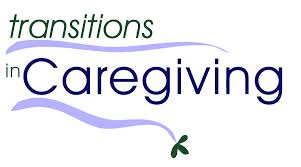
In a roundabout way to explore good conscience in the practice of medicine, I was intrigued by the article by Dr. Phil titled, Stop Spoiling Your Kids.[i] As a physician caregiver, I often question how I might be spoiling my patients. “Over-indulgence is one of the most insidious forms of child abuse,” as quoted by Dr. Phil. I have long felt that patients are abused at the end of life by obliging them to receive unnecessary intervention that prevents them from reaching their full potential through the experience of dying. Guiding, more so than giving to others, is generally rooted in good conscience. Caregivers might actually lessen their feeling drained by redefining themselves as careguiders.
Adopting the bullet points from Dr. Phil’s article might provide insight for caregivers and physicians alike in how to become effective careguiders.
- A careguiders primary job is not to make people feel better, but to have them accept the things they cannot change; have the courage to change the things they can and the wisdom to know the difference.
- If the physician/patient relationship is based solely on unnecessary lab tests, x-rays and medication, the patient will not have the opportunity to experience unconditional love (validation from a higher power).
- Be a good role model, win respect and influence patients with evidence-based practices.
- Redefine what patient care means. Am I providing care that is emotionally and spiritually uplifting through making time to create understanding? Conversation seemingly stops once there is an imposing need to order tests.
- Don’t let patient satisfaction get in the way of being a good careguider. My job as a physician is not to feel better by giving patients everything to make them feel better. My job is to empower people to manage their own healthcare decisions. Patients need to be socialized in order to modify behavior that will seemingly get them everything they desire through manipulation, pouting, crying, door slamming and creating guilt.
- Make certain persons are not defined by their medical illness. Time is best spent by undoing or consolidating diagnoses. Careguiders need to counterbalance the negative images maintained by patients.
- Understand “intrinsic” versus “extrinsic” motivation. Intrinsic health is discovered patients having inherent resources. Extrinsic health is garnered through needing medication.
- Ensure that patients understand the value of preventive medicine. Maintaining excellent health enhances quality of life. Good health aids adequate quality of life. Poor health leads to poor quality of life.
- Being healthy is more psychological than physical. The difference between wellness and illness occurs when people who are well tend to eye the proverbial glass half full.
- Do not over-indulge entitlement as compensation for the injustice of illness. Entitlement generally does not support self-worth.
- Patients will get over the disappointment of having a procedure, test or medication denied. In lieu of spoiling them, provide them the means by which to cope.
- Help set end-of-life goals from the beginning. Teach patients that dying is part of living, as exhalation follows inhalation. There is no shame in engaging life to the fullest and exhaling in peace.
Leave a Reply